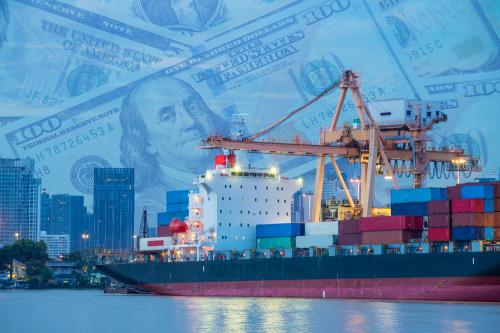“Considering the low priority of Africa in China’s overall foreign strategic mapping, a disproportionate level of international attention, publicity and scrutiny is paid to China’s Africa engagement,” writes Yun Sun, in a recent John L. Thornton China Center/Africa Growth Initiative paper, “Africa in China’s Foreign Policy.”
Below are selected data from her paper. Download it to read her thorough analysis of China’s interests in Africa and how China’s internal bureaucracy makes political, economic and security decisions regarding Africa policy.
- By the end of 2009, 45.7 percent of China’s cumulative foreign aid of ¥256.29 billion had been given to countries in Africa.
- China is Africa’s largest trading partner, surpassing the United States in 2009.
- In 2012, China’s trade with Africa reached $198.5 billion, while U.S.-African trade in 2012 was $99.8 billion.
- China’s trade with Africa is only 5 percent of its global trade total.
- More than 80 percent of China’s $93.2 billion in imports from Africa in 2011 were crude oil, raw materials and resources.
- In 2011, China’s investment in Africa was 4.3 percent of its global total (Asia represented 60.9 percent, Latin America 16 percent, and Europe 11.1 percent).
- In 2012, the China Development Bank agreed to provide $3 billion in loans to Ghana, which was almost 10 percent of Ghana’s GDP.
- South Africa is China’s largest trading partner in Africa, at a volume of $20.2 billion. Yet this is 4 percent of China’s trade with the European Union.
“[O]verall,” writes Sun, “Africa’s strategic importance for Beijing remains low.”
In the years to come, China’s engagement with Africa is expected to grow. The system will adapt and adopt easy fixes for some problems, for instance, by increasing spending on training African human resources or by enhancing corporate social responsibility programs for local African communities. However, given China’s priority of fueling domestic economic growth with African resources and market potential, a more profound reconsideration of China’s overall strategic engagement with Africa will be required to resolve the most fundamental problems in Sino-African relations. The inertia that currently characterizes China’s policy approaches to Africa will most likely remain unchanged in the near future. This situation deserves effective responses—from Africa and from the rest of the world.
Download the paper here, and visit both the China Center and the Africa Growth Initiative for additional research on related topics.
Mingwei Ma contributed to this post.
The Brookings Institution is committed to quality, independence, and impact.
We are supported by a diverse array of funders. In line with our values and policies, each Brookings publication represents the sole views of its author(s).



Commentary
8 Facts about China’s Investments in Africa
May 20, 2014